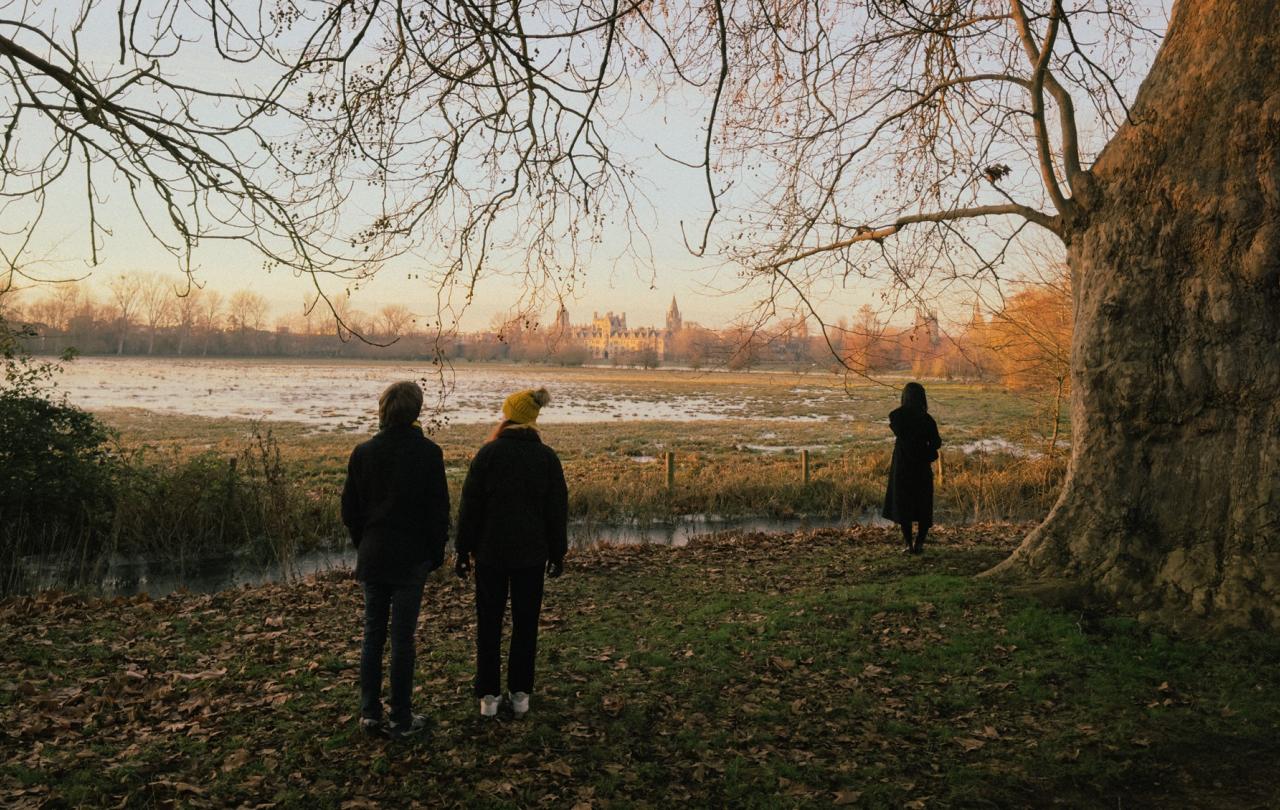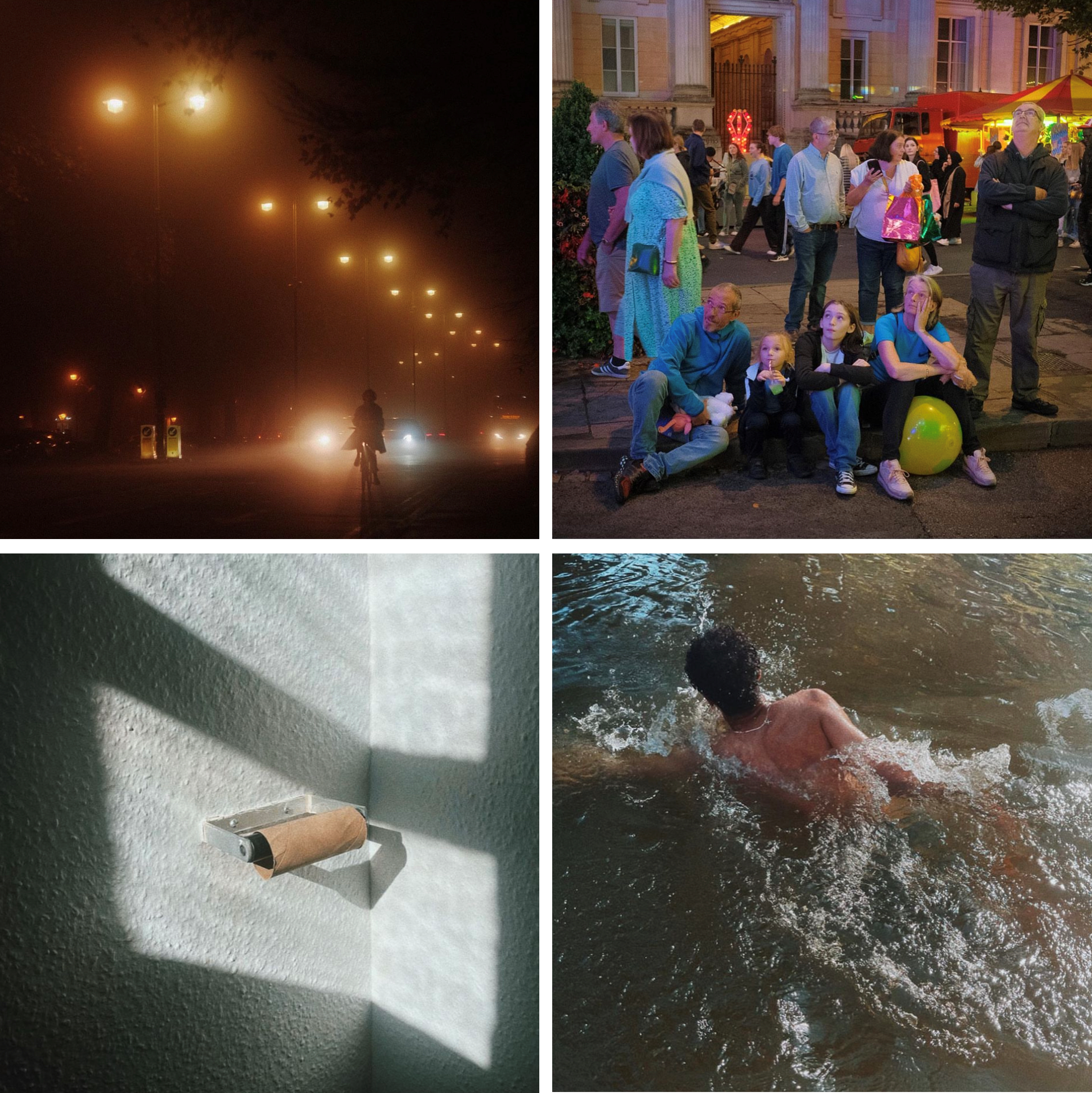
I was standing in a coffee shop queue one morning when I fell into a conversation with a student behind me. I won’t bore you with the small-talk pleasantries, because one way or another, we happened upon the topic of Magic. As one does. Apparently, he was increasingly, and very sincerely, becoming more open to the possibility of supernatural magic in the world. Weird. He then proceeded to tell me that he’s been practicing Casual Magic. Naturally, and with internal eyebrows raised, I asked him what Casual Magic was. According to my new friend, it’s when you see small moments of magic in the trivial moments of life - little flashes of enchantment that lift your spirits and points you to ‘something more’. He was saying how he’s increasingly found it more important to find things to be grateful for in the mundane moments of the day. It seemed to me a strangely Christian thing to say. I also thought it was a very mature thing to say and a lovely thing to hear on a Tuesday morning. But then he proceeded to tell me that you can shorten it to ‘CajMaj’ which might be the most Gen Z thing I have ever heard. That broke me.
You might be feeling underwhelmed, like I was. I was slightly hoping to get an insight into some strange micro-culture of contemporary pagans muttering incantations under their breath throughout the day, or a crew of David Blaine mega-fans practicing Casual Magic on unsuspecting pedestrians. Turns out, CajMaj is a very familiar concept dressed up in new clothes. We all know what this is referring to.
A swim in the river on a summer’s day; a foggy night turning streetlights into mystical balls of fire; a worn-out family at a funfair sitting on the ground looking tired but content; or even a stray sunbeam cast on a 1970s wood-chip wall while you’re lamenting on the loo about the lack of toilet paper. Yes, even that last one. In a previous life, I was a photographer and still fancy myself as a competent amateur nowadays. These are all my favourite CajMaj moments I’ve captured in the last year. For what it’s worth, my favourite kind of photography is the art of capturing #CajMaj.
#CajMaj moments
Author's own pictures.

Instagram aside, writers, poets, mystics, and philosophers have all written about this experience in different ways.
We have Mac Davis’ song Stop and Smell the Roses, or travel writer Cheryl Strayed's ‘Put yourself in the way of beauty’. If you’re the corporate type, I’m sure you’ve seen The Habit of Gratitude lying around on team building days (although I can’t help but think this is a barely veiled threat to stop complaining about your boss). If you want to get slightly pretentious, German philosopher, Dietrich Von Hilderbrand enjoyed writing about the ‘Poetry of Life’ while James Joyce wrote about the Epiphanies of the everyday.
Recently, in the 21st-century streams of psychology and neuroscience, Dacher Keltner has written about the 'quiet profundity of everyday life' in his book AWE: The New Science of Everyday Wonder and How it can Transform your Life. For Keltner, these moments of ‘being in the presence of something vast that transcends your understanding’ are essential to our happiness and even our cardiovascular system. They also make us more selfless, relaxed and more creatively inspired. So wherever you are on the romantic-cynic spectrum, a healthy dose of awe in your life is probably a good idea.
Fun and brave
But there’s just something I love about the new packaging of ‘CajMaj’. I think that’s for two specific reasons. The first is that the phrase is fun. We like to make things serious and overcomplicated but these moments often confront us in little flashes of joy, warmth, and whimsy and the language we use to express that should be equally joyful, warm, and whimsical. The ‘epiphany of the everyday’ doesn’t quite do it for me. Secondly, I like ‘CajMaj’ because it’s brave enough to recognise that these moments might be something outside of ourselves and our normal experience breaking into our world. Now, I’m sure most CajMaj-ers aren’t using the word ‘Magic’ seriously, but my friend in the cafe was, at the very least, using it to express something spiritual and real going on.
This matters.
Because if we drilled down to it - what exactly is going on when we experience these moments? Perhaps some of us, when push comes to shove, would want to interiorise and psychologise it. It’s all happening inside our minds and we’re simply projecting deeper meaning onto the world around us. We might think we’re observing something mystical and transcendent out there, but that’s ultimately an illusion. ‘CajMaj’, however, says that maybe, there really is something going on out there, an Unseen Realm, and we’re getting a taste of it. It’s not just happening inside our brains, we are encountering something real but just out of reach. Ultimately, we have the ask this question: “Is all of this just sentimental romanticism, or is it a profound moment of clarity?”
Christians see CajMaj moments as flashes of the beauty and character of God. They are moments of spiritual encounter. But for the Christian, these moments are not just warm fuzzies or general, vague senses of awe and romantic transcendence. They tell us something real about the world. The Bible and Christian history is full of CajMaj, but they are seen as specific moments of clarity and knowledge. “The heavens declare the glory of God,” claims the songwriter in Psalm 19. Jesus himself appealed to these moments to say something specific about God:
“Look at the birds in the air: they don’t sow or reap, yet your heavenly Father feeds them. Are you not much more valuable than they?”.
Tim Kallistos Ware, the English bishop of the Eastern Orthodox Church, who died last year, wrote that:
“the whole universe is one vast burning bush permeated by the fire of divine power and glory”.
I want to live in that universe. And I believe that I do.
Through a glass
These moments can tell us something about our identity, our value, and our purpose. But they need someone to make sense of it for us – something personal. We all have these moments of transcendence (twice-a-week on average according to Keltner) but more often than not it’s like a light shining through frosted glass. We might know and feel there’s something beyond it but it's blurry and out of focus. Don’t you want to pierce through that frosted glass and see what might lay beyond? That’s the promise of Christianity - and most other religions for that matter.
Today, we tend to be turned off by institutional and formal expressions of religious faith. We generally prefer a more personal, spiritual connection than committing ourselves to external doctrines or religious systems. But these so-called systems, which are often characterised as dry and straight-jacketing, are, in fact, vibrant paintings of what lies beyond that glass, painted by hundreds of generations of theologians, mystics, and artists far smarter and deeper than you or me. You might question if they’re right or not, but they certainly demand engagement. After all, what would be more tragic that spending the rest of your life catching odd glimpses of out-of-focus landscapes when the possibility of bright, illuminating, spiritual sunlight might just be around the corner?
Casual Magic, CajMaj, is just another manifestation of a very human experience, but this experience comes with a promise. The promise of seeing the unseen, of unravelling the mystery of life, of experiencing the presence of God himself. It may be casual, but it ain’t trivial.
#CajMaj





